At 68, Marianne Diorio is thriving. After a remarkable tenure at Estée Lauder, where she held key positions and played a pivotal role in shaping the global communication strategy for an impressive portfolio of brands, Marianne has seamlessly transitioned into the next chapter of her vibrant life. Now retired, she’s lending her expertise to startup beauty protein bar company Glow Beauty Fuel, infusing her modern approach to looking and feeling good. But that’s not all that’s blooming — she and her husband reside in Shelter Island, NY, where they’ve become small-batch flower- and vegetable farmers and run a roadside honor flower stand, Superflowers47, showcasing her imaginative, locally grown flower designs. In this exclusive interview, we dive into Marianne’s diverse career, insights into the beauty industry, and her newfound passion for cultivating beauty from the inside out.
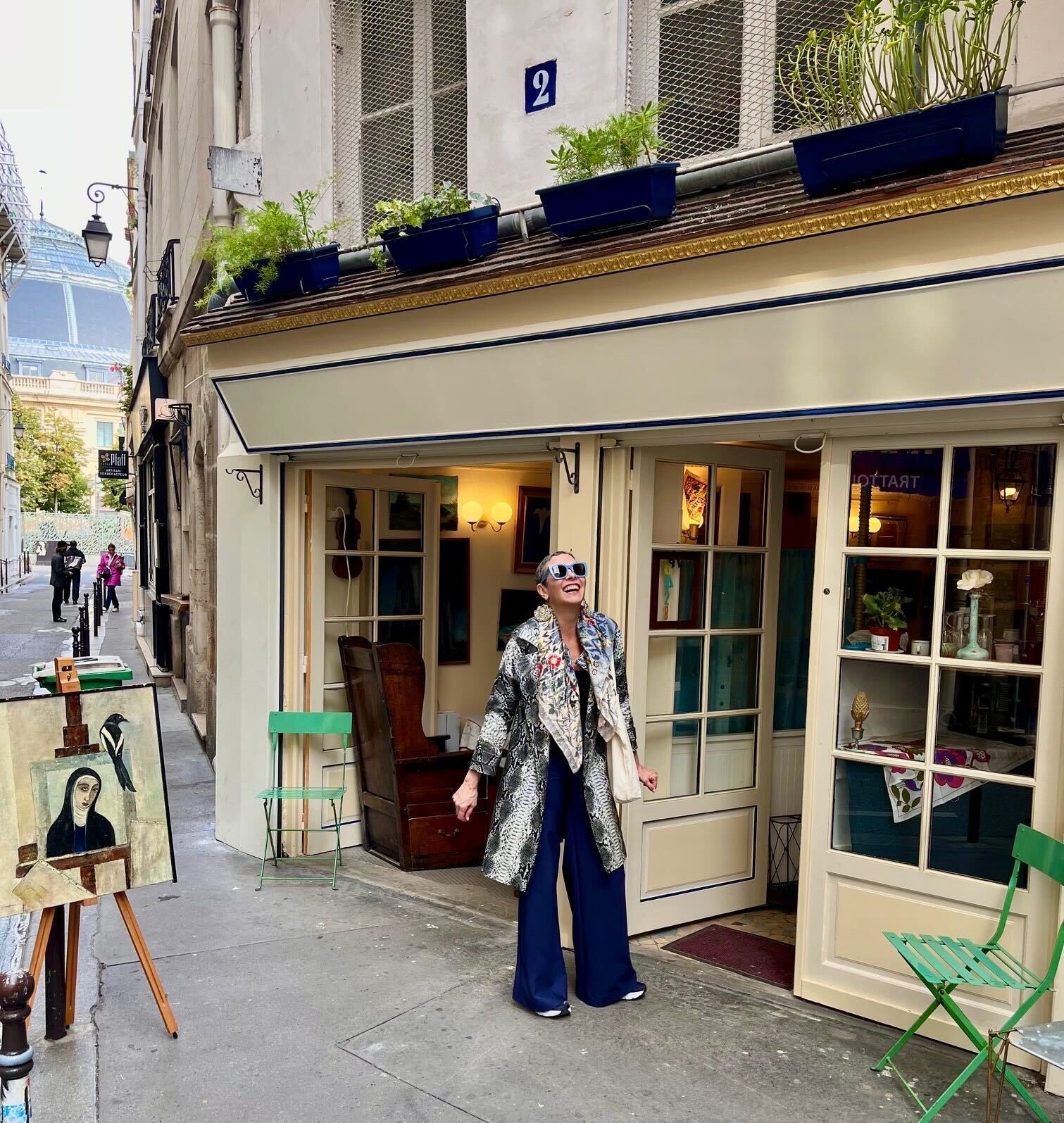
How old are you?
I’m proudly 68.
Where did you grow up?
I was born in New York City, and my parents moved to the suburbs. So, I grew up in Great Neck, New York, and then Manhasset. So, I’m like a suburban Long Island Expressway origin story.
And where do you live now?
My husband and I live on Shelter Island. We also maintain a place in Manhattan on 10th Street. So we’re fortunate enough to be able to do that.
And was this before the pandemic that you decided to go?
It was. When I left Estée Lauder, my husband and I discussed it. We wanted to devote ourselves to gardening, and so this was the place. And we always had a garden, but then it multiplied and grew. We always really felt a real kinship for this place. We’ve been here now since 1988.
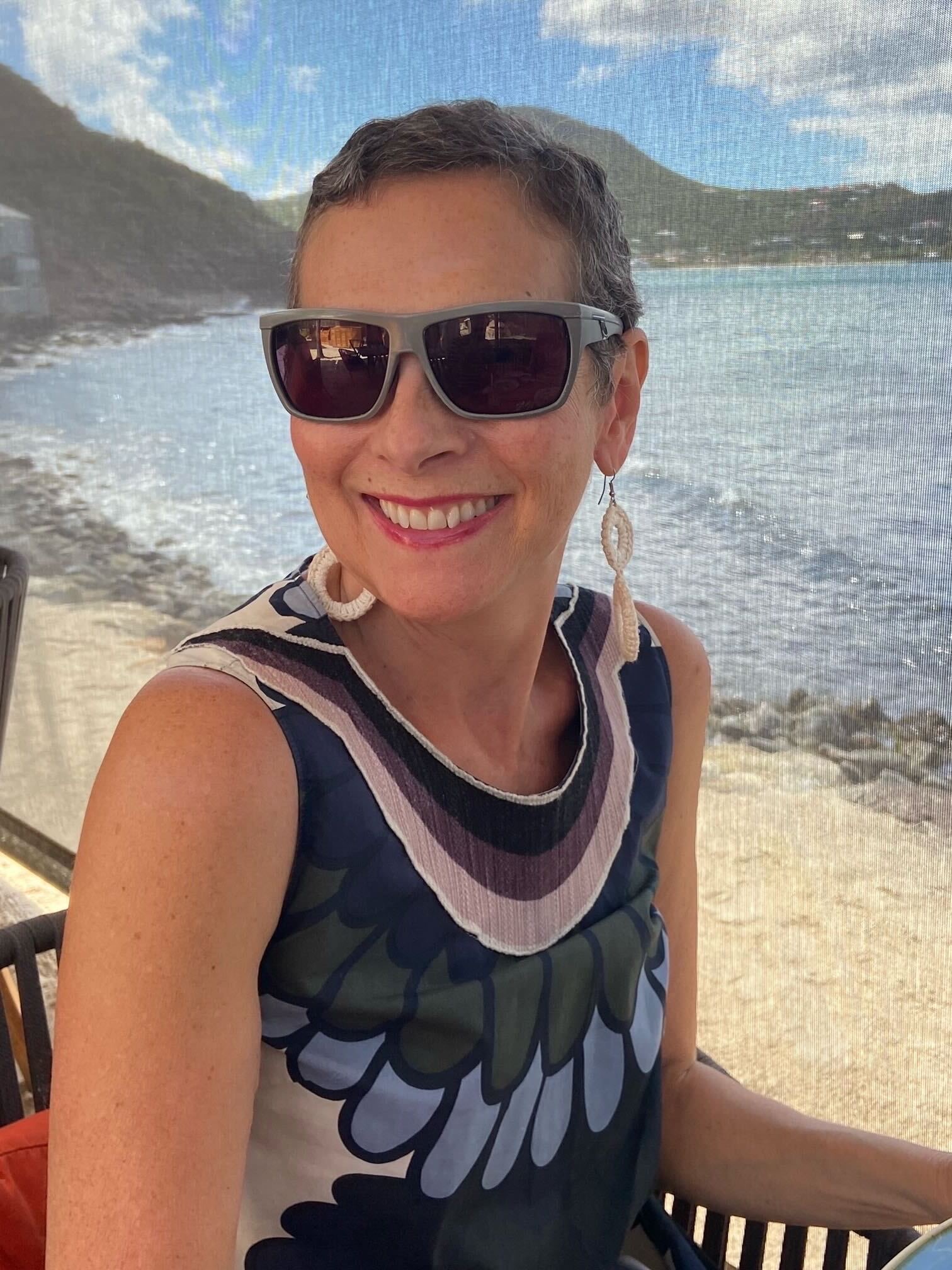
Do you have children?
Yes, we have a daughter named Tiki, who is now 24. She lived in Little Italy for two years after college but now wants to move to LA.
Transitioning from a prominent role in the beauty industry to flower farming is quite a shift. Can you share what inspired this?
It happened organically. I always had a little garden, but it was a hobby.
I loved my work at Estée Lauder. It was a great job. It was a great experience. I made friends for life. And then there was a moment where it was like, “I don’t want to work 12 hours a day” because that’s what it took. My team was worldwide, so there’d be calls to China or Japan at all odd hours. So, it became like, “Is this how I want to live the next chapter of my life?”
“I was always obsessed with my work in communications, and then I became obsessed with my labor in the garden”
How old were you then?
Late 50s or early 60s. It was like, “Okay, what will my life look like?” And I was subconsciously thinking this, but then I was also consciously saying, “Okay, how do I move towards that? And how do I responsibly move towards it? How do I gracefully leave the company, and in a way that’s setting them up for success in the future?” It would be very jarring for me because I had a career in some way, shape, or form in some organization. And I was totally in the right headspace for it. It just was right for me.
I was always obsessed with my work in communications, and then I became obsessed with my labor in the garden, much of which is physical. So, it was a massive shift. Not that it’s not mental, that you don’t use your head a lot, but you’re using your body a lot, too. It’s a very life-affirming activity.

What are your favorite flowers?
I love Nigella because it’s delicate and keeps growing back. But it has a very short lifespan, so you can only enjoy it for a concise amount of time, making it even more precious. I also love peonies. That’s been my thing now, planting peony bushes all over the place, and they’re, to me, works of art. You look at them and can’t believe how incredible they are. Dahlias are also spectacular, and they’re also very hearty. I like Zinnia, too. Even though they’re ubiquitous, they are like your dependable friend. You can’t do anything to make them go away. Lisianthus is another one that I love. They look like roses. I love multi-petals. I love bright colors. I’m not a minimalist when it comes to flowers. I love big bouquets, different flowers, and bright, engaging, happy colors.
I did a flower pilgrimage in Paris when we were just there, and we went to Castor-Fleuriste. Talk about inspiration.
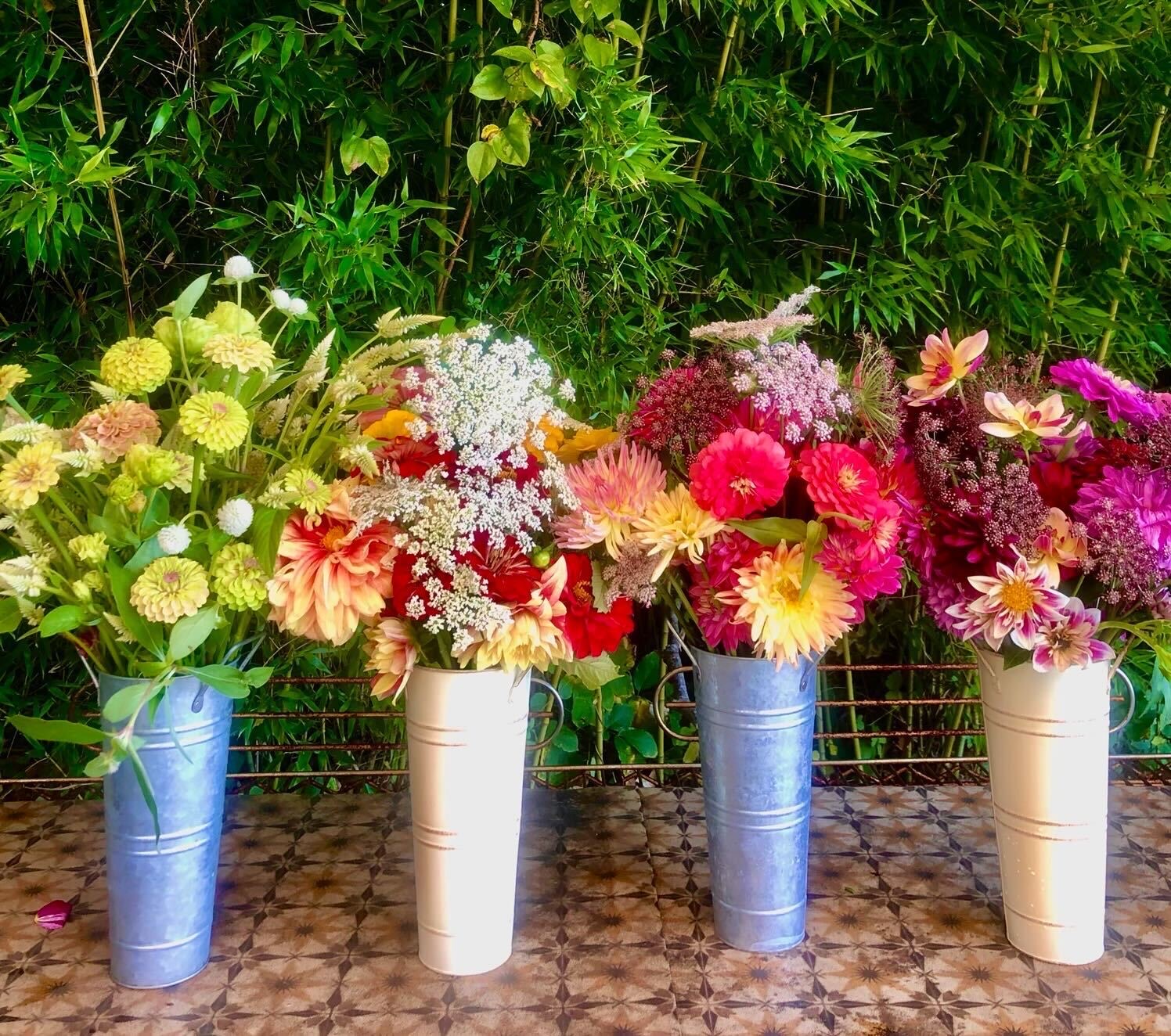
What has growing flowers taught you?
A lot. It’s very analogous to my life experiences. I do a lot of my plants from seed. So, you grow this little, tiny thing, put it in soil, water it every day, and stare at it, and it’s like caring for any other living thing, creature, person, or animal that you might have as an infant. But it’s also analogous to people that you meet throughout your life. So, you grow this thing, put it in the ground, watch the weather, nurture it, and then sometimes see it not do so well, and sometimes you see it thrive even under the worst conditions. So, it’s very much the cycle of life. And then you see it die.
Because that’s part of the gardening process, you get into the rhythm of, “Okay, this is the way we are as living creatures.” I’m not a woo-woo person, but it is a spiritual experience.
Give us a pro tip for arranging flowers.
Just let her rip, try, and put things together that you’re feeling and that please you. I tend to do things that are slightly off-kilter and slightly kooky, which pleases me very much. And it helps the people who come by my little stand.
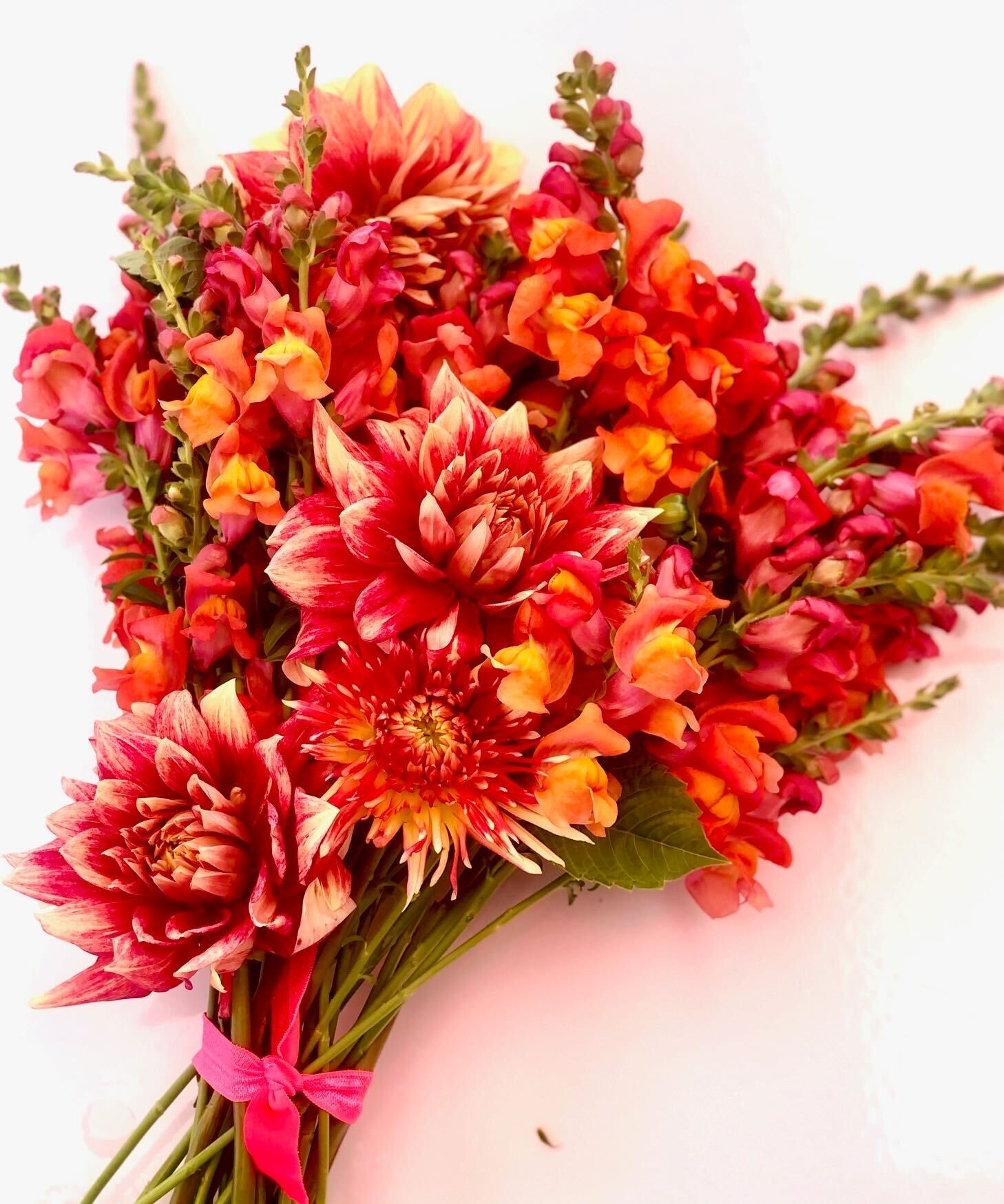
Take us through your daily routine.
I get up around 7:00, have my coffee, and stretch a lot to warm up my body for the physical labor of gardening. I try to do 100 sit-ups and a minute plank, and when I’m feeling frisky, 50 push-ups (knees bent), and my balance exercises. I eat a light breakfast, and I’m off to the races.
And with your extensive background in beauty, how do you approach self-care and beauty in this stage of life?
The beauty industry can be so empowering, and it can also be, when it’s not communicated correctly, significantly diminishing.
“The beauty industry can be so empowering, and it can also be, when it’s not communicated correctly, significantly diminishing”
Yes.
So, I always went in the direction or trying to go into the direction of confidence building, empowering, etc. Sometimes, I succeeded; sometimes, I didn’t, because sometimes, making people feel like there’s something wrong with them helps to sell stuff.
But that was never the starting point for me, anyway. So now, at this point, and for years, I had very long blonde hair.
I loved the ritual of going to the stylist, having it done, and sitting down; it was my alone time. And then when I went to this place where it didn’t feel important anymore, I thought “Wow, I’d rather be spending that time doing something else,” or even the way it looked on me, it just didn’t feel like me anymore.
It’s like, “Well, that was great for then, and who are you now? And how do you express that?” So, it’s much more natural.
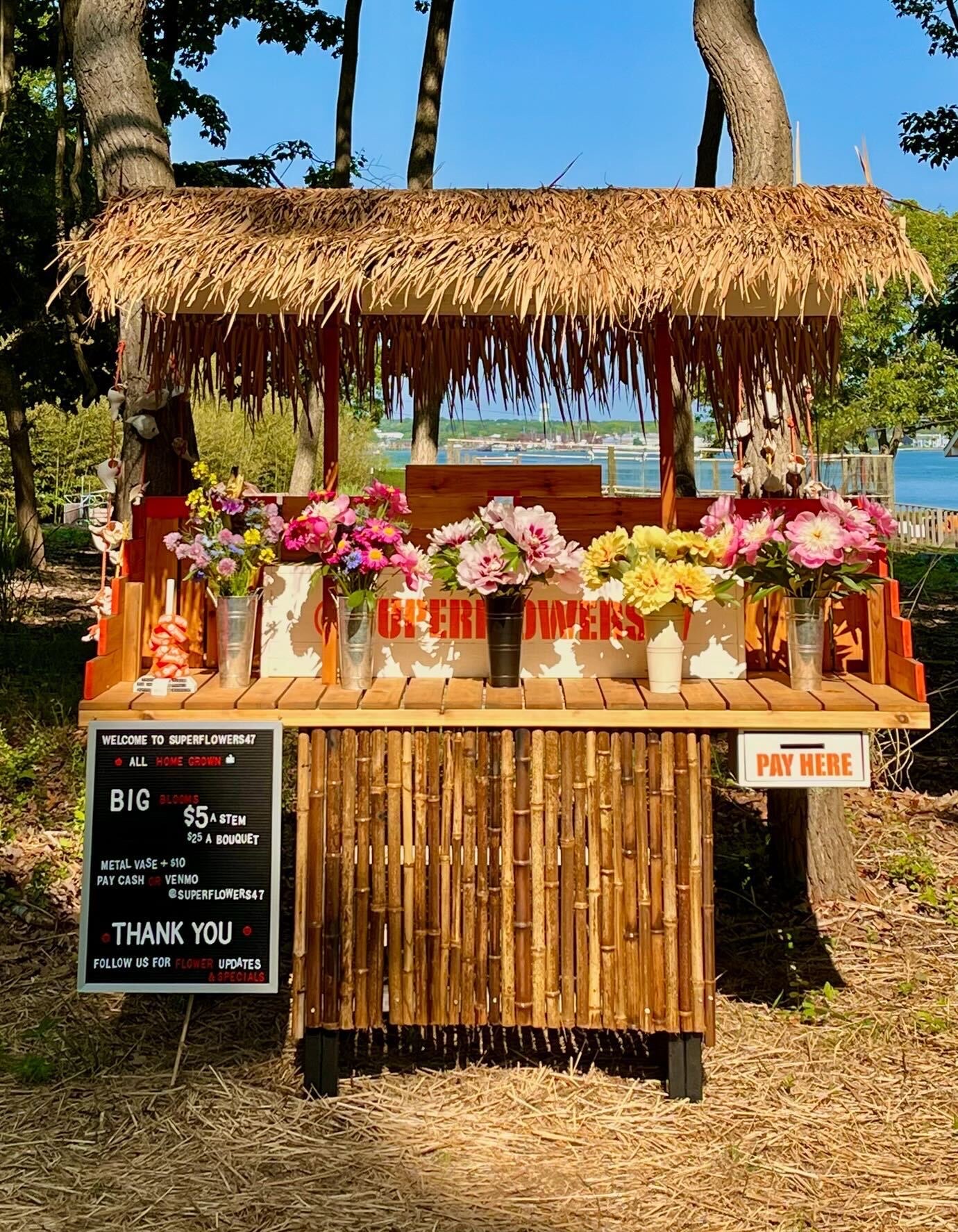
Because of what you’re doing now, do you think your connection to nature has influenced your outlook on aging?
I do. Because when you’re gardening, you find beauty in many weird places. It’s not always just the beautiful, perfect flower; sometimes it’s the wacky, imperfect one that comes out of the package, or sometimes a leaf. So, it’s like, “Okay, let me look at myself now with clear eyes and say, ‘How am I going to look my best at this age? What is my natural state?’ ” And believe me, I’m not entirely natural. But I don’t even want to signal youth so much anymore. I want to signal: this is who I am right now.
“Staying vital means keeping your heart in things”
“Retirement” is often a time to slow down, but you do many things. How do you redefine and embrace this chapter of life on your terms?
Retirement lacks a fitting word, like “the next chapter,” but even that feels like reaching the end of the book. It’s an evolving concept akin to freedom. Unlike my previous daily commitments, my current pursuits in gardening and consulting feel more like choices than obligations. While I’ve always loved what I did, there comes a point when you question if your heart is still in it. Staying vital means keeping your heart in things.
How can the narrative around aging be reshaped to be more positive and inclusive from the communications marketing perspective?
I’ve pondered that quite a bit. As one matures, there’s a sense that certain aspects of contemporary knowledge, like social media or slang, may elude us. It’s like wearing a mini skirt or hot pants that once suited but might not be the best fit now.
Yet, amidst this, I yearn for a more nuanced perspective that acknowledges the gaps in certain areas but also values the wealth of experience, wisdom, and unique insights that come with age. Personally, I’ve noticed a shift toward greater calmness, improved listening skills, and a more thoughtful approach to expressing opinions. The objectivity that comes with age allows for a broader, more reflective view shaped by diverse experiences.
But language, like anti-aging, is a term that we should move on from.
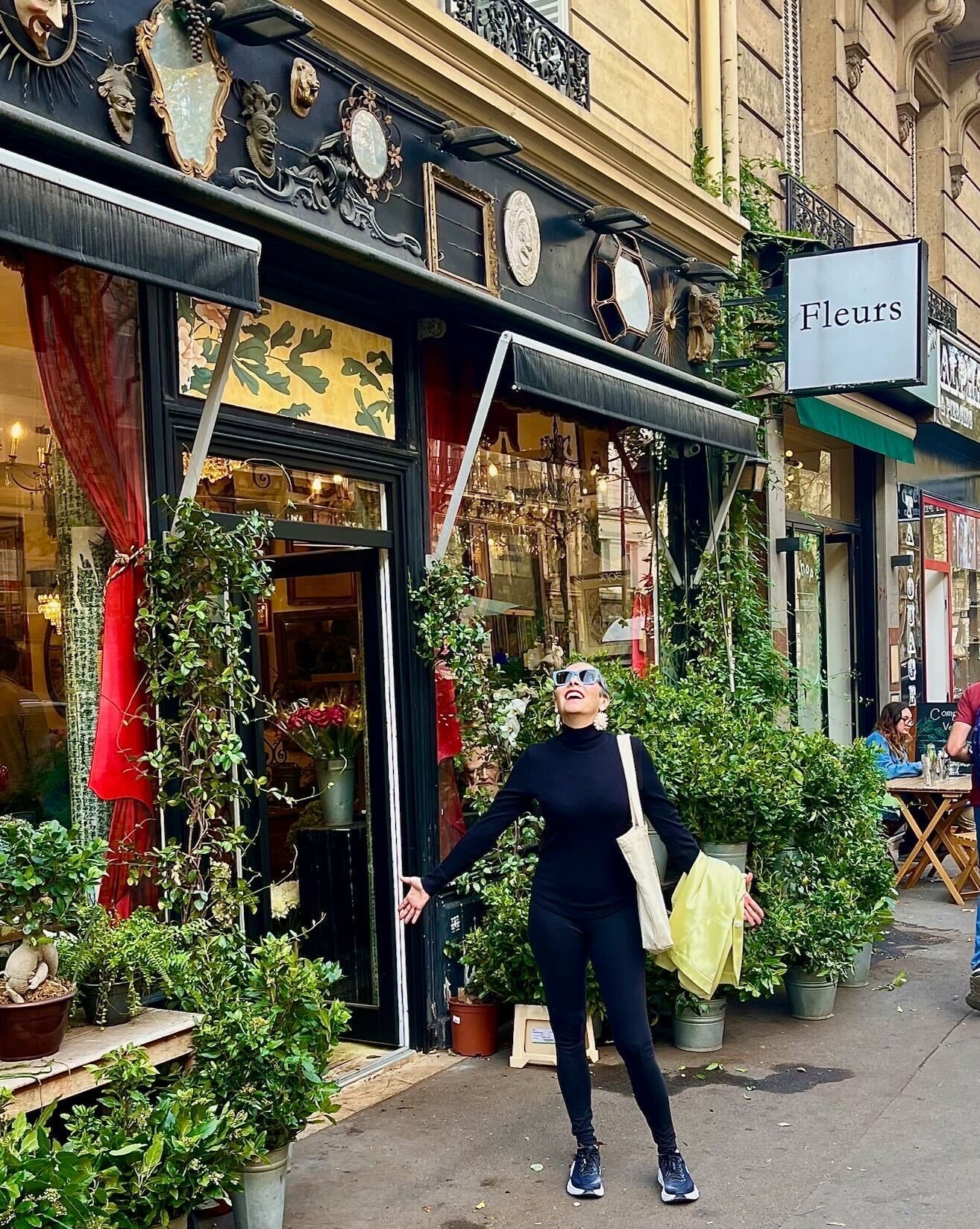
I agree.
And pro-aging is not pro-aging either because it’s like you’re just going to age. Everyone’s going to age. It should just be like, “I’m breathing.”
“I’m breathing, so, therefore I’m aging, because I’m supposed to be aging. I didn’t do anything wrong.”
What is the alternative?
There may be something wrong with aging language that we must start eliminating from the vocabulary and making it a more positive experience.
Amen to that. How would you describe this chapter of your life?
This is one of the happiest phases of my life, marked by a profound sense of freedom and a reduced concern for others’ opinions. It’s a joyous time, shifting away from emphasizing physical appearance, though that still matters. The pleasure now comes from a more authentic self, less focused on external validation or fleeting beauty standards. Looking back, I question the significance of certain concerns in my youth, realizing how inconsequential they were in the grand scheme.
“This is one of the happiest phases in my life”
And speaking of that, what advice would you give those entering the later stages of their career and contemplating a new chapter?
If somebody feels financially insecure, I would give other advice to that person than I would to someone who feels economically secure.
It’s easy to say, “Oh, just follow your passions and go out and have fun.” But that only works for some. So, I think if it’s like, if you are financially insecure or feel economically insecure and you need to work, it’s like, “Stay the course and keep on the road.” Just keep playing it in as long as you need.

That’s excellent advice. On a more whimsical note, what are you currently listening to?
I’ve got this playlist that I have, mainly for the summer. But it’s very, very eclectic. I call it St. Barth’s Kooky.
What are your three non-negotiables in life?
Family, fun, and laughter.
Fabulous. What is your biggest life challenge today, and how are you dealing with it?
It’s listening to the news. The state of the world and how precarious it feels is a challenge.
I couldn’t agree with you more. What did you learn about yourself that you didn’t realize?
I’d tell my younger self to use sunscreen. Also, cherish and nurture your health because it will do you well. You’re going to be able to live vibrantly as you age.
Just like a garden.
Completely. You have to tend to your garden. And there you go. Link to that killer playlist here.
Connect with Marianne Diorio:
LinkedIn
Instagram
Superflowers Stand Instagram
LEAVE A REPLY
The ideas expressed here are solely the opinions of the author and are not researched or verified by AGEIST LLC, or anyone associated with AGEIST LLC. This material should not be construed as medical advice or recommendation, it is for informational use only. We encourage all readers to discuss with your qualified practitioners the relevance of the application of any of these ideas to your life. The recommendations contained herein are not intended to diagnose, treat, cure or prevent any disease. You should always consult your physician or other qualified health provider before starting any new treatment or stopping any treatment that has been prescribed for you by your physician or other qualified health provider. Please call your doctor or 911 immediately if you think you may have a medical or psychiatric emergency.


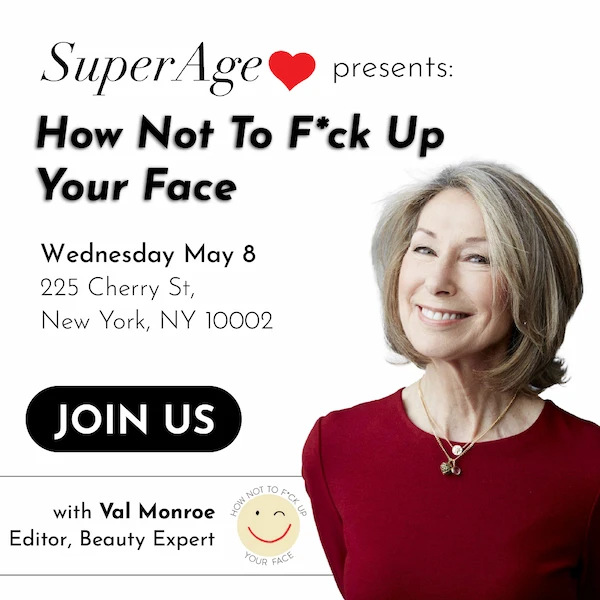
Excellent interview!
Love her energy, love of life and beauty in nature!! I am in my late 70’s and try to feel like this every day. Thanks for posting!! Very inspiring!! I agree, wear sunscreen every day!!
inspirational! on so many levels
beautiful too!